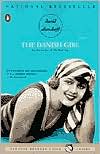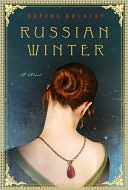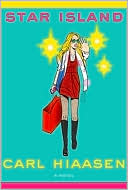The Danish Girl
A stunning first novel that probes the mysteries of sex, gender, and love with insight and subtlety\ Inspired by the true story of Danish painter Einar Wegener and his California-born wife, this tender portrait of a marriage asks: What do you do when someone you love wants to change? It starts with a question, a simple favor asked of a husband by his wife on an afternoon chilled by the Baltic wind while both are painting in their studio. Her portrait model has canceled, and would he mind...
Search in google:
It starts with a question, a simple favor asked of a husband by his wife on an afternoon chilled by the Baltic wind while both are painting in their studio. Her portrait model has canceled, and would he mind slipping into women's shoes and stockings for a few moments so that she can finish the painting on time? "Of course," he answers, "Anything at all." With that, one of the most passionate and unusual love stories of the twentieth century begins." "Inspired by the true story of Danish painter Einar Wegener and his California-born wife; this tender portrait of a marriage asks: What do you do when someone you love wants to change? Einar dresses more and more as Lili - the name given to her by Greta - and what started off as a game becomes a way of life for Greta and Einar. With Lili as her muse, Greta's paintings begin to flourish. A French art dealer spots her work and the couple moves to Paris for the sake of Greta's career. In the permissive air of Paris between the wars, Lili is liberated and increasingly becomes Greta's companion on public outings. As Einar fades into memory they realize that a choice must be made: Lili or Einar. Greta finds a surgeon-psychologist at the Dresden Municipal Women's Clinic, and Einar travels to Germany to become, once and for all, Lili Elbe.New York Daily NewsA sensitive exploration of sexuality and a love story.
CHAPTER ONE\ His wife knew first. "Do me a small favor?" Greta called from the bedroom that first afternoon. "Just help me with something for a little bit?" "Of course," Einar said, his eyes on the canvas. "Anything at all." The day was cool, the chill blowing in from the Baltic. They were in their apartment in the Widow House, Einar, small and not yet thirty-five, painting from memory a winter scene of the Kattegat Sea. The black water was white-capped and cruel, the grave of hundreds of fishermen returning to Copenhagen with their salted catch. The neighbor below was a sailor, a man with a bullet-shaped head who cursed his wife. When Einar painted the gray curl of each wave, he imagined the sailor drowning, a desperate hand raised, his potato-vodka voice still calling his wife a port whore. It was how Einar knew just how dark to mix his paints: gray enough to swallow a man like that, to fold over like batter his sinking growl. "I'll be out in a minute," said Greta, younger than her husband and handsome with a wide flat face. "Then we can start." In this way as well Einar was different from his wife. He painted the land and the sea-small rectangles lit by June's angled light, or dimmed by the dull January sun. Greta painted portraits, often to full scale, of mildly important people with pink lips and shine in the grain of their hair. Herr I. Glückstadt, the financier behind the Copenhagen Free Harbor. Christian Dahlgaard, furrier to the king. Ivar Knudsen, member of the shipbuilding firm Burmeister and Wain. Today was to have been Anna Fonsmark, mezzo-soprano from the Royal Danish Opera. Managing directors and industry titans commissioned Greta to paint portraits that hung in offices, above a filing cabinet, or along a corridor nicked by a worker's cart. Greta appeared in the door frame. "You sure you won't mind stopping for a bit to help me out?" she said, her hair pulled back. "I wouldn't have asked if it weren't important. It's just that Anna's canceled again. So would you mind trying on her stockings?" Greta asked. "And her shoes?" The April sun was behind Greta, filtering through the silk hanging limply in her hand. Through the window, Einar could see the tower of the Rundetårn, like an enormous brick chimney, and above it the Deutscher Aero-Lloyd puttering out on its daily return to Berlin. "Greta?" Einar said. "What do you mean?" An oily bead of paint dropped from his brush to his boot. Edvard IV began to bark, his white head turning from Einar to Greta and back. "Anna's canceled again," Greta said. "She has an extra rehearsal of Carmen. I need a pair of legs to finish her portrait, or I'll never get it done. And then I thought to myself, yours might do." Greta moved toward him, the shoes in her other hand sennep-yellow with pewter buckles. She was wearing her button-front smock with the patch pockets where she tucked things she didn't want Einar to see. "But I can't wear Anna's shoes," Einar said. Looking at them, Einar imagined that the shoes might in fact fit his feet, which were small and arched and padded softly on the heel. His toes were slender, with a few fine black hairs. He imagined the wrinkled roll of the stocking gliding over the white bone of his ankle. Over the small cushion of his calf. Clicking into the hook of a garter. Einar had to shut his eyes. The shoes were like the ones they had seen the previous week in the window of Fonnesbech's department store, displayed on a mannequin in a midnight-blue dress. Einar and Greta had stopped to admire the window, which was trimmed with a garland of jonquils. Greta said, "Pretty, yes?" When he didn't respond, his reflection wide-eyed in the plate glass, Greta had to pull him away from Fonnesbech's window. She tugged him down the street, past the pipe shop, saying, "Einar, are you all right?" The front room of the apartment served as their studio. Its ceiling was ribbed with thin beams and vaulted like an upside-down dory. Sea mist had warped the dormer windows, and the floor tilted imperceptibly to the west. In the afternoon, when the sun beat against the Widow House, a faint smell of herring would seep from its walls. In winter the skylights would leak, a cold drizzle bubbling the paint on the wall. Einar and Greta stood their easels beneath the twin skylights, next to the boxes of oil paint ordered from Herr Salathoff in Munich, and the racks of blank canvases. When Einar and Greta weren't painting, they protected everything beneath green tarps the sailor below had abandoned on the landing. "Why do you want me to wear her shoes?" Einar asked. He sat in the rope-bottom chair that had come from the backshed of his grandmother's farm. Edvard IV jumped into his lap; the dog was trembling from the yelling of the sailor below. "For my painting of Anna," Greta said. And then, "I'd do it for you." On the point of her cheek was a single shallow chicken-pox scar. Her finger was brushing it gently, something she did, Einar knew, when she was anxious. Greta knelt to unlace Einar's boots. Her hair was long and yellow, more Danish in color than his; she would push it behind her ears whenever she wanted to get busy on something new. Now it was slipping over her face as she picked at the knot in Einar's laces. She smelled of orange oil, which her mother shipped over once a year in a case of brown bottles labeled pure pasadena extract. Her mother thought Greta was baking tea cakes with the oil, but instead Greta used it to dab behind her ears. Greta began to wash Einar's feet in the basin. She was gentle but efficient, quickly pulling the sea sponge between his toes. Einar rolled up his trousers even further. His calves looked, he suddenly thought, shapely. He delicately pointed his foot, and Edvard IV moved to lick the water from his little toe, the one that was hammer-headed and born without a nail. "We'll keep this our secret, Greta?" Einar whispered. "You won't tell anyone, will you?" He was both frightened and excited, and the child's fist of his heart was beating in his throat. "Who would I tell?" "Anna." "Anna doesn't need to know," Greta said. Even so, Anna was an opera singer, Einar thought. She was used to men dressing in women's clothes. And women in men's, the Hosenrolle. It was the oldest deceit in the world. And on the opera stage it meant nothing at all-nothing but confusion. A confusion that was always resolved in the final act. "Nobody needs to know anything," Greta said, and Einar, who felt as if a white stage light were on him, began to relax and work the stocking up his calf. "You're putting it on backwards," Greta said, righting the seam. "Pull gently." The second stocking ripped. "Do you have another?" Einar asked. Greta's face froze, as if she was just realizing something; then she went to a drawer in the pickled-ash wardrobe. The wardrobe had a closet on top with an oval mirror in its door, and three drawers with brass-hoop handles; the top one Greta locked with a little key. "These are heavier," Greta said, handing Einar a second pair. Folded neatly into a square, the stockings looked to Einar like a patch of flesh-a patch of Greta's skin, brown from a summer holiday in Menton. "Please be careful," she said. "I was going to wear them tomorrow." The part through Greta's hair revealed a strip of silvery-white flesh, and Einar began to wonder what she was thinking beneath it. With her eyes slanted up and her mouth pinched, she seemed intent on something. Einar felt incapable of asking; he nearly felt bound, with an old paint rag tied across his mouth. And so he wondered about his wife silently, with a touch of resentment ripening beneath his face, which was pale and smooth and quite like the skin of a white peach. "Aren't you a pretty man," she had said, years ago, when they were first alone. Greta must have noticed his discomfort, because she reached out and held Einar's cheeks and said, "It means nothing." And then, "When will you stop worrying about what other people think?" Einar loved it when Greta made such declarations-the way she'd swat her hands through the air and claim her beliefs as the faith of the rest of the world. He thought it her most American trait, that and her taste for silver jewelry. "It's a good thing you don't have much hair on your legs," Greta said, as if noticing it for the first time. She was mixing her oil paints in the little ceramic Knabstrup bowls. Greta had finished the upper half of Anna's body, which years of digesting buttered salmon had buried in a fine layer of fat. Einar was impressed with the way Greta had painted Anna's hands holding a bouquet of day lilies. The fingers were carefully rendered, the knuckles puckered, the nails clear but opaque. The lilies were a pretty moon-white, stained with rusty pollen. Greta was an inconsistent painter, but Einar never told her so. Instead, he praised as much as he could, perhaps too much. But he helped her wherever possible, and would try to teach her techniques he thought she didn't know, especially about light and distance. If Greta ever found the right subject, Einar had no doubt, she would become a fine painter. Outside the Widow House a cloud shifted, and sunlight fell on the half-portrait of Anna. The model's platform Greta used was a lacquer trunk bought from the Cantonese laundress who would make a pickup every other day, announcing herself not with a call from the street but with the ping! of the gold cymbals strapped to her fingers. Standing on the trunk, Einar began to feel dizzy and warm. He looked down at his shins, the silk smooth except for a few hairs bursting through like the tiny hard fuzz on a bean. The yellow shoes looked too dainty to support him, but his feet felt natural arched up, as if he was stretching a long-unused muscle. Something began to run through Einar's head, and it made him think of a fox chasing a fieldmouse: the thin red nose of the fox digging for the mouse through the folds of a pulse field. "Stand still," Greta said. Einar looked out the window and saw the fluted dome of the Royal Theatre, where he sometimes painted sets for the opera company. Right now, inside, Anna was rehearsing Carmen, her soft arms raised defiantly in front of the scrim he'd painted of the Seville bullring. Sometimes when Einar was at the theatre painting, Anna's voice would rise in the hall like a chute of copper. It would make him tremble so much that his brush would smudge the backdrop, and he would rub his fists against his eyes. Anna's wasn't a beautiful voice-rough-edged and sorrowful, a bit used, somehow male and female at once. Yet it had more vibrancy than most Danish voices, which were often thin and white and too pretty to trigger a shiver. Anna's voice had the heat of the South; it warmed Einar, as if her throat were red with coals. He would climb down from his ladder backstage and move to the theatre's wings: he'd watch Anna, in her white lamb's-wool tunic, open her square mouth as she rehearsed with Conductor Dyvik. She would lean forward when she sang; Anna always said there was a musical gravity pulling her chin toward the orchestra pit. "I think of a thin silver chain connected to the tip of the conductor's baton and fastened right here," she would say, pointing to the mole that sat on her chin like a crumb. "Without that little chain, I almost feel I wouldn't know what to do. I wouldn't know how to be me." When Greta painted, she'd pull her hair back with a tortoiseshell comb; it made her face look larger, as if Einar were looking at it through a bowl of water. Greta was probably the tallest woman he'd ever known, her head high enough to glance over the half-lace curtains ground-floor residents hung in their street windows. Next to her Einar felt small, as if he were her son, looking up beyond her chin to her eyes, reaching for a hanging hand. Her patch-pocket smock was a special order from the white-bunned seamstress around the corner, who measured Greta's chest and arms with a yellow tape and with admiration and disbelief that such a large, healthy woman wasn't a Dane. Greta painted with a flexible concentration that Einar admired. She was able to dab at the gleam in a left eye and then answer the door and accept the delivery from the Busk Milk Supply Company and return effortlessly to the slightly duller glare in the right. She'd sing what she called campfire songs while she painted. She'd tell the person she was painting about her girlhood in California, where peacocks nested in her father's orange groves; she'd tell her female subjects-as Einar once overheard upon returning to the apartment's door at the top of the dark stairs-about their longer and longer intervals between intimacy: "He takes it so very personally. But I never blame him," she'd say, and Einar would imagine her pushing her hair behind her ears. "They're drooping," Greta said, pointing her paintbrush at his stockings. "Pull them up." "Is this really necessary?" The sailor below slammed a door, and then it was silent except for his giggling wife. "Oh, Einar," Greta said. "Will you ever relax?" Her smile sank and disappeared into her face. Edvard IV trotted into the bedroom, and began to dig through the bedclothes; then came a fed baby's sigh. He was an old dog, from the farm in Jutland, born in a bog; his mother and the rest of the litter had drowned in the damp peat. The apartment was in the attic of a building the government opened in the previous century for the widows of fishermen. It had windows facing north, south, and west and, unlike most of the townhouses in Copenhagen, could give Einar and Greta enough room and light to paint. They had almost moved into one of the burgher houses in Christianshavn on the other side of the Inderhavn, where artists were settling n with the prostitutes and the gambling drunks, alongside the cement-mixing firms and the importers. Greta said she could live anywhere, that nothing was too seedy for her; but Einar, who had slept under a thatch roof the first fifteen years of his life, decided against it, and found the space in the Widow House. The facade was painted red, and the house sat one block from Nyhavns Kanal. The dormer windows stuck out of the steep, clay-tile roof, which was black with moss, and the skylights were cut high in the pitch. The other buildings on the street were whitewashed, with eight-paneled doors painted the color of kelp. Across the way lived a doctor named Møller who received emergency calls from women giving birth in the night. But few motorcars sputtered down the street, which dead-ended at the Inderhavn, making it quiet enough to hear the echo of a shy girl's cry. "I need to get back to my own work," Einar finally said, tired of standing in the shoes, the pewter buckles pressing sharply. "Does that mean you don't want to try on her dress?" When she said the word "dress" his stomach filled with heat, followed by a clot of shame rising in his chest. "No, I don't think so," Einar said. "Not even for a few minutes?" she asked. "I need to paint the hem against her knees." Greta was sitting on the rope-bottom chair beside him, stroking Einar's calf through the silk. Her hand was hypnotic, its touch telling him to close his eyes. He could hear nothing but the little rough scratch of her fingernail against the silk. But then Greta stopped. "No, I'm sorry," she said. "I shouldn't have asked." Now Einar saw that the door to the pickled-ash wardrobe was open, and hanging inside was Anna's dress. It was white, with drop beads along the knee-hem and the cuff. A window was cracked, and the dress was swaying gently on the hanger. There was something about the dress-about the dull sheen of its silk, about the bib of lace in the bodice, about the hook-buttons on the cuffs, unlatched and split apart like little mouths-that made Einar want to touch it. "Do you like it?" Greta asked. He thought about saying no, but that would have been a lie. He liked the dress, and he could nearly feel the flesh beneath his skin ripening. "Then just slip it on for a few minutes." Greta brought it to Einar and held it to his chest. "Greta," he said, "what if I-" "Just take off your shirt," she said. And he did. "What if I-" "Just close your eyes," she said. And he did. Even with his eyes closed, standing shirtless in front of his wife felt obscene. It felt as if she'd caught him doing something he had promised he would avoid-not like adultery, but more like resuming a bad habit he'd given his word he would quit, like drinking aquavit in the canal bars of Christianshavn or eating frikadeller in bed or shuffling through the deck of suede-backed girlie cards he once bought on a lonely afternoon. "And your trousers," Greta said. Her hand reached out, and she politely turned her head. The bedroom window was open, and the brisk fishy air was pimpling his skin. Einar quickly pulled the dress over his head, adjusting the lap. He was sweating in the pits of his arms, in the small of his back. The heat was making him wish he could close his eyes and return to the days when he was a boy and what dangled between his legs was as small and useless as a white radish. Greta only said, "Good." Then she lifted her brush to the canvas. Her blue eyes narrowed, as if examining something on the point of her nose. A strange watery feeling was filling Einar as he stood on the lacquer trunk, the sunlight moving across him, the scent of herring in the air. The dress was loose everywhere except in the sleeves, and he felt warm and submerged, as if dipping into a summer sea. The fox was chasing the mouse, and there was a distant voice in his head: the soft cry of a scared little girl. It became difficult for Einar to keep his eyes open, to continue watching Greta's fast, fishlike movements as her hand darted at the canvas, then pulled away, her silver bracelets and rings turning like a school of chub. It became difficult for him to continue thinking about Anna singing over at the Royal Theatre, her chin leaning toward the conductor's baton. Einar could concentrate only on the silk dressing his skin, as if it were a bandage. Yes, that was how it felt the first time: the silk was so fine and airy that it felt like a gauze-a balm-soaked gauze lying delicately on healing skin. Even the embarrassment of standing before his wife began to no longer matter, for she was busy painting with a foreign intensity in her face. Einar was beginning to enter a shadowy world of dreams where Anna's dress could belong to anyone, even to him. And just as his eyelids were becoming heavy and the studio was beginning to dim, just as he sighed and let his shoulders fall, and Edvard IV was snoring in the bedroom, just at this moment Anna's coppery voice sang out, "Take a look at Einar!" His eyes opened. Greta and Anna were pointing, their faces bright, their lips peeled apart. Edvard IV began to bark in front of Einar. And Einar Wegener couldn't move. Greta took from Anna her bouquet of day lilies, a gift from a stage-door fan, and pressed them into Einar's arms. With his head lifted like a little trumpet player, Edvard IV began to run protective circles around Einar. While the two women laughed some more, Einar's eyes began to roll back into his head, filling with tears. He was stung by their laughter, along with the perfume of the white lilies, whose rusty pistils were leaving dusty prints in the lap of the dress, against the garish lump in his groin, on the stockings, all over his open wet hands. "You're a whore," the sailor below called tenderly. "You're one hell of a beautiful whore." From downstairs, the silence implied a forgiving kiss. Then there was even louder laughter from Greta and Anna, and just as Einar was about to beg them to leave the studio, to let him change out of the dress in peace, Greta said, her voice soft and careful and unfamiliar, "Why don't we call you Lili?"
\ Daniel BlueThe Danish Girl aspires to be work of art. Ebershoff writes in a sensuous but unaffected style, as simple and rich as colors on a canvas. His characters move with formal solemnity, and there is design to their appearances, as though they took part in a dance. Einar changes into Lili, and Greta and Einar switch places artistically. New partners enter and replace one another, and a stately progress takes place, a flowing stasis which keeps the novel balanced and graceful. \ — Lambda Book Report\ \ \ \ \ New York Daily NewsA sensitive exploration of sexuality and a love story.\ \ \ Publishers WeeklyEbershoff, the publishing director at Modern Library, has taken a highly unusual subject--and a big chance--for his first novel. That it comes off triumphantly is a tribute to his taste and restraint and to the highly empathetic quality of his imagination. His book is based on the real-life story of Einar Wegener, a Danish artist who 70 years ago became the first man to be medically transformed into a woman--long before the much better-known case of Christine Jorgensen. Ebershoff has naturally changed some of the characters, giving Einar an American wife from his own native city of Pasadena, thereby introducing a New World perspective on the drama. For a very real drama it is. Einar struggles with his inclinations to become the woman he and his wife, Greta, refer to as Lili, seemingly more agonized about what the change would mean than Greta, who is deeply loving and amazingly supportive throughout Einar's long ordeal. Seldom has the delicate question of sexual identity been more subtly probed (one would have to go all the way back to Jan Morris's autobiographical Conundrum); and Ebershoff's remarkable feel for the period atmosphere and detail of 1920s Copenhagen and early-'30s Dresden, where Lili's life-transforming operation is finally performed, has been poetically and intensely rendered. The portraits of the various medical men who offer their very different solutions to the problem are brilliantly accomplished. The original story ended much more unhappily than Ebershoff's, but his poignant and visionary conclusion is a fitting one for what is, above all, and despite its sensationalist trimmings, a profound and beautifully realized love story. Eight-city author tour; rights sold in Germany, Italy, U.K., Spain, Australia, Brazil, Finland, Portugal, the Netherlands and Denmark. (Feb.) Copyright 1999 Cahners Business Information.\ \ \ \ \ Library JournalEbershoff's (www.ebershoff.com) 2000 debut novel, which is currently being adapted into a film starring Nicolas Cage and Nicole Kidman, precedes the New York Times best sellers Pasadena (2002) and The 19th Wife (LJ Audio 10/15/08). Set in 1920s Copenhagen, Dresden, and Paris, the title is loosely based on the life of Danish painter Einar Wegener, who underwent sex reassignment surgery to become Lili, and explores his/her relationship with wife Greta. As Einar and Greta struggle to learn how to live with Lili, listeners are given an intimate view of a marriage irrevocably altered. While the novel is well written overall, the multitude of flashbacks adds little. Jeff Woodman's (High Deryni) performance is superb, brimming with understated emotion. Recommended for anyone who enjoys stories outside of the mainstream.—Donna Bachowski, Orange Cty. Lib. Syst., Orlando, FL\ \ \ \ \ Bethany SchneiderEbershoff's grippingly plotted first novel carries us throught the 1920's, when the infant fields of psychology and sexology were beginning to inform a new vision of human partnership.\ —Out\ \ \ \ \ BernsteinHis writing is of a highly refined kind; his story is marvelously furnished with period details, from the smell of the Danish cheese that drifted from next door into a Copenhagen art gallery to the look of the Elbe River in the early Dresden spring. Most important, Mr. Ebershoff has written an unusual and affecting love story centering on a confrontation with the mystery of the other. \ —The New York Times Book Review\ \ \ \ \ Publishers WeeklyEbershoff's bestseller--based on the true story of 1920s married artists Einar and Gerda Gottleib Wegener--makes a rocky transition to audio. After posing in women's clothing for his wife's portrait work, Einar explores a preference for appearing as a woman. Eventually, he undergoes sex reassignment surgery and becomes Lili Elbe. The narration switches between Lili's and Gerda's points of view, and listeners might be left wondering why the Einar/Lili characterization seems to be a split personality, with Einar and Lili thinking of the other as separate, and both Einar and Gerda viewing Lili as a third individual. It's a confusing and dry listen made more puzzling by the decision to have the audiobook narrated by a male reader, when so much of the story is told from Gerda and Lili's viewpoints. Nevertheless, Jeff Woodman turns in a solid performance. He has a smooth voice and delivery; he gives Lili with a softness and timidity that sounds fitting and has Gerda sounding more assertive and confident. A Penguin hardcover. (June)\ \ \ \ \ The Boston Globe“Heartbreaking and unforgettable . . . a complete triumph.”\ —The Boston Globe\ \ \ \ \ The New York Times“An unusual and affecting love story.”\ —The New York Times\ \ \ \ \ Esquire“A sophisticated and searching meditation on the nature of identity.”\ —Esquire\ \ \ \ \ The Baltimore Sun“It is nearly impossible not to be moved.”\ —The Baltimore Sun\ \








